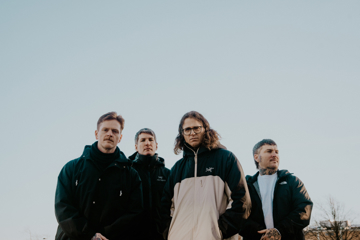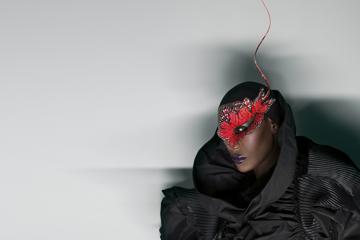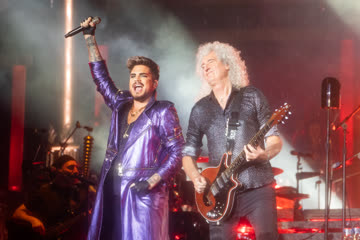Billy Bragg Talks Activism & Opinions In The Age Of Social Media On 'Q&A'
"I actually find the ability to connect with some of those people and listen in to the conversations that they're having quite helpful."

Bluesfest artist Billy Bragg appeared on ABC panel show Q&A last night, engaging with a diversity of topics that spanned from the recent airstrike in Syria and national euthanasia policy to Brexit, housing prices and beyond.
Among the fray — which also featured politicians Mitch Fifield and Penny Wong, along with author Nikki Gemmell and bioethics professor Margaret Somerville — Bragg was asked a question by audience member Joshua Armstrong as to whether, "as we move away from unbiased journalism towards opinion-based journalism, and our ability to filter out news that we don't agree with", we're becoming less tolerant to opinions that do not align with our own at a societal level.
Acknowledging it as a "very good question", Bragg relayed his own experiences on social media — particularly Twitter — and the steps he takes to avoid falling into the trap of building an echo chamber around himself.
"On Twitter, I try and make a point of following some outlets that I don't necessarily agree with — I've got the New Statesman and The Spectator — and I try and get a reasonable balance," Bragg said. "It's possible that you can use something like Twitter to follow people from a different generation completely to yours, that have a perspective that you don't. Politics on the left has changed considerably, in ideological terms, since I was learning about it in the 1980s.
Don't miss a beat with our FREE daily newsletter
"There are activists under the age of 30 now — quite a few of them that I follow — particularly young feminists, who are talking about where I think is the front line of politics for the younger generation, which is around gender, and things that I don't really have a background in, and the people that I meet and talk about aren't talking about these issues.
"So, I actually find the ability to connect with some of those people and listen in to the conversations that they're having quite helpful, really, because you don't really see that so much in the newspapers that you buy … I actually find social media a way to bring in, if not necessarily completely opposing opinions, opinions from people who I wouldn't encounter in a day-to-day conversation."
Host Tony Jones recalled a past comment by Bragg that referred to the internet as an "open sewer of cynicism", drawing a line to Facebook via fellow ABC program 4 Corners, which had just aired an episode examining "the way [Facebook] tracks people's desires, the way it sends people news that they want to hear".
On this topic, Bragg was a little less optimistic:
"They're certainly reading our mail in that sense, which is a little bit worrying — you know, when you kind of, like, search online for a pair of slippers and for the rest of the week you're getting slippers adverts… you know, it's just as well you weren't inadvertently looking for kippers or something else," he said. "So, I mean, that is pretty creepy."
"But surely there's going to come a time where we have greater control over that, where we say, you know, 'If this is what you're gonna do with our information then we're going to charge you for it,' because there is clearly huge fortunes to be made in data collection."
Melbourne fans can catch Bragg at this weekend's Another Really Really Good Friday event, being held by the RocKwiz team, at Hamer Hall, or, of course, see him in action at Bluesfest.







